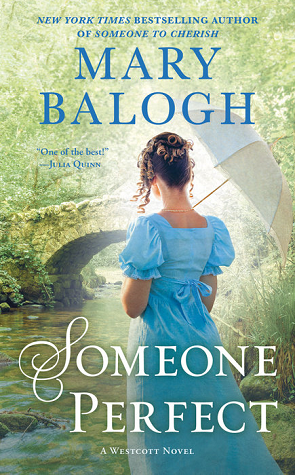 Someone Perfect (Westcott, #9) by Mary Balogh
Someone Perfect (Westcott, #9) by Mary Balogh Format: eARC
Source: supplied by publisher via Edelweiss
Formats available: hardcover, paperback, ebook, audiobook
Genres: historical fiction, historical romance
Series: Westcott #9
Pages: 400
Published by Berkley on November 30, 2021
Purchasing Info: Author's Website, Publisher's Website, Amazon, Barnes & Noble, Kobo, Bookshop.org
Goodreads
Sometimes, just one person can pull a whole family apart. And sometimes, it just takes one person to pull it back together. For fans of Bridgerton, New York Times bestselling Regency Romance author Mary Balogh shows how love truly conquers all in this new Friends of the Westcotts novel.
As a young man, Justin Wiley was banished by his father for mysterious reasons, but now, his father is dead, and Justin has been Earl of Brandon for six years. A dark, dour man, he, nonetheless, takes it as his responsibility to care for his half-sister, Maria, when her mother dies. He travels to her home to fetch her back to the family seat at Everleigh Park.
Although she adored him, once, Maria now loathes Justin, and her friend, Lady Estelle Lamarr, can see, immediately, how his very name upsets her. When Justin arrives and invites Estelle and her brother to accompany Maria to Everleigh Park to help with her distress, she begrudgingly agrees, for Maria's sake.
As family secrets unravel in Maria's homecoming, Justin, too, uncovers his desire for a countess. And, while he may believe he's found an obvious candidate in the beautiful 25-year-old Lady Estelle, she is most certain that they could never make a match...
My Review:
Is there such a thing as historical relationship fiction? Or is that just what used to be called a family saga?
The reason I’m asking is that as the Westcott series has continued it has begun to feel more like relationship fiction (or women’s fiction to use the more popular but also more cringe-worthy name) and less like a romance. Not that romances don’t occur during each book including this one, but rather that the romance doesn’t feel like the central point of the story.
Particularly in this book, Someone Perfect, which feels like it’s more about the family relationships between and around Justin Wiley, the Earl of Brandon, and his estranged sister Maria. Who just so happens to be best friends with Lady Estelle Lamarr, who, through several twists and turns, is tangentially related to the Westcott family this series has followed through nine books now and hopefully counting.
But it feels like Estelle and her twin brother Bertrand are part of this story in order to provide that connection to the Westcotts. Even though Estelle eventually becomes the romantic heroine of this story. Which turned out to be lovely but just didn’t seem to stand at the center of it all.
Instead, that romance occurs in the midst of a story about collateral damage, which has been the central theme of the whole, overarching Westcott saga.
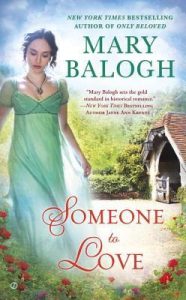 The Westcott series began back in Someone to Love when Humphrey Westcott, the Earl of Riverdale, shuffled off this mortal coil. While going through his papers in the wake of his death, his pernicious bastardy came to light.
The Westcott series began back in Someone to Love when Humphrey Westcott, the Earl of Riverdale, shuffled off this mortal coil. While going through his papers in the wake of his death, his pernicious bastardy came to light.
Not that Humphrey’s parents weren’t married, but rather that Humphrey’s marriage to the woman who believed she was his countess lo these many years was bigamous – making their four children bastards and his not-exactly-countess a scarlet woman. (She eventually marries Estelle and Bertrand’s father in Someone to Care but that’s another story.)
Humphrey never suffered for his actions – unless he’s occupying a very hot place in hell. But the series as a whole has focused on his collateral damage – all the people whose lives were overturned when his perfidy was discovered.
Justin and Maria are also suffering from being collateral damage as a result of a parent’s unforgivable actions. In their case, the parent at the heart of the mess was Maria’s mother, Justin’s stepmother. Justin and Maria have been estranged for over a decade because of her mother’s actions. Maria has been cut off from her entire family on both sides, all her aunts, uncles, cousins, etc., because of her mother’s actions.
And it’s Maria’s and Justin’s journey that feels like the centerpiece of this book. Not just that Justin has to put his very real hurts and grievances into the past – because all the perpetrators are beyond Earthly justice.
Maria loves her mother, and accepted everything her mother said without question. But her mother is dead, and her entire gathered family is presenting her with an entirely different perspective on the life she thought she knew. If she can accept the love and support they offer – there are questions she needs to ask herself in order to be part of a family that has always loved her even though she never knew it.
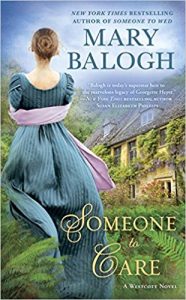 Escape Rating B+: I hesitated a bit before starting this, because I was still getting over last week’s foray into historical romance. But I’m glad I picked this one up after all.
Escape Rating B+: I hesitated a bit before starting this, because I was still getting over last week’s foray into historical romance. But I’m glad I picked this one up after all.
At the same time, I still have mixed feelings about this book. In this case, those mixed feelings are the result of being of two minds about what kind of book it is. If this is supposed to be a historical romance, it didn’t quite hit the mark for me. I enjoyed the story, and liked the characters, but if this is a romance then the romance needed to be the center of the story, and it just wasn’t. I didn’t really buy the romance between Justin and Estelle even though I liked them both. His first proposal to Estelle was rather lackluster and she rightfully rejected it. But it did sum up their relationship perhaps a little too well.
Maria’s and Justin’s journey towards being a family again and being welcomed into the rest of their family felt like it was a much bigger and better story. I felt their heartache and heartbreak and just how much they wanted to find their way back to each other even though on Maria’s part, at least, there was absolutely no trust to be found. The big family gathering that Justin arranged – that could absolutely have been a complete disaster on every level – turned out to be heartwarming and utterly lovely.
So the romance occurred and the family story won the day in this one. At the end, neither Justin’s sister Maria nor Estelle’s brother Bertrand had found even a hint of a future romantic partner, and there was nothing to indicate that they were looking at each other at all – which is probably a good thing. Both because it would be a bit TOO neat and tidy, and because it means that there will hopefully be at least two more books to look forward to in the Westcott series!

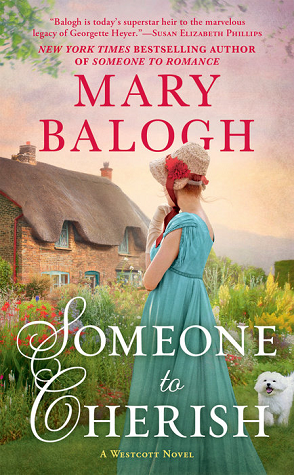 Someone to Cherish (Westcott #8) by
Someone to Cherish (Westcott #8) by 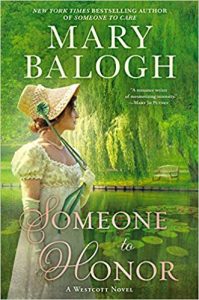 A freedom that she will lose if she trusts herself to another man – no matter how much that man claims to love her. After growing up in an environment designed to keep her childlike, and marrying a man she loved but who dictated her every move and thought, the first person whose judgement she questions is always herself.
A freedom that she will lose if she trusts herself to another man – no matter how much that man claims to love her. After growing up in an environment designed to keep her childlike, and marrying a man she loved but who dictated her every move and thought, the first person whose judgement she questions is always herself.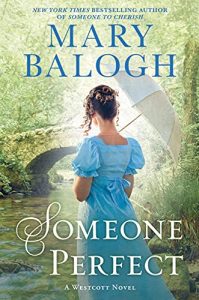 So as much as I’ve enjoyed this series as a whole, the book in the series that this one most reminds me of is
So as much as I’ve enjoyed this series as a whole, the book in the series that this one most reminds me of is 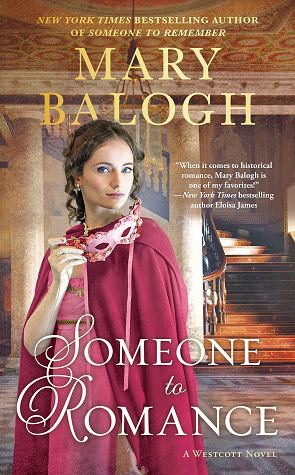 Someone to Romance (Westcott, #8) by
Someone to Romance (Westcott, #8) by 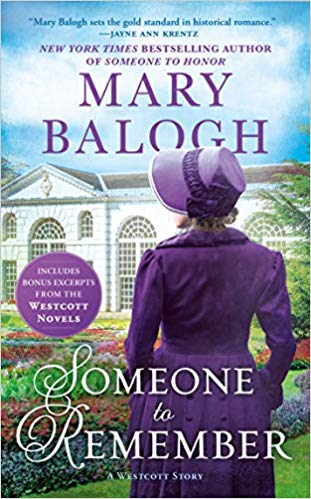 Someone to Remember (Westcott, #7) by
Someone to Remember (Westcott, #7) by 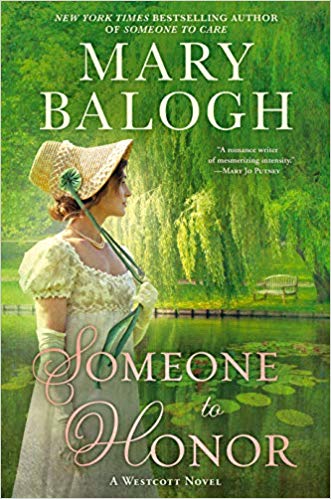 Someone to Honor (Westcott, #6) by
Someone to Honor (Westcott, #6) by 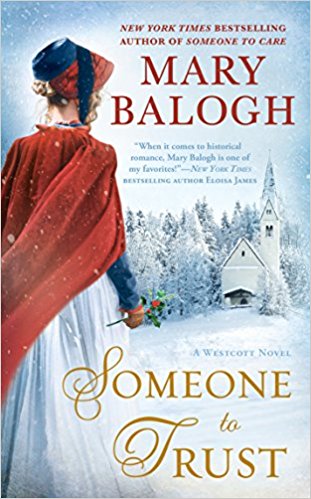 Someone to Trust (Westcott, #5) by
Someone to Trust (Westcott, #5) by 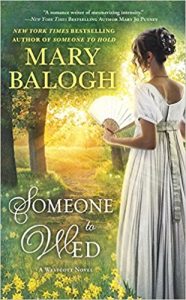 Escape Rating A-: I love it when an older woman/younger man romance does it right, as Someone to Trust certainly does. I also hate it when it’s done wrong or for laughs, which never happens in this story.
Escape Rating A-: I love it when an older woman/younger man romance does it right, as Someone to Trust certainly does. I also hate it when it’s done wrong or for laughs, which never happens in this story.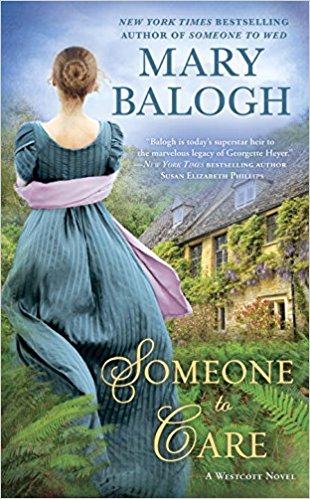 Someone to Care (Westcott, #4) by
Someone to Care (Westcott, #4) by 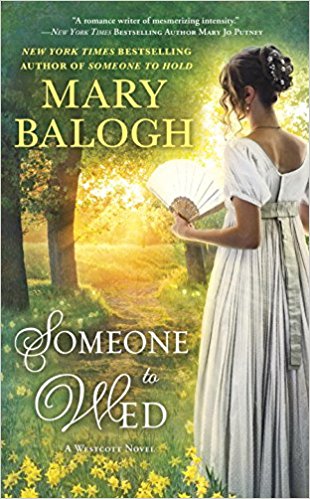 Someone to Wed (Westcott #3) by
Someone to Wed (Westcott #3) by 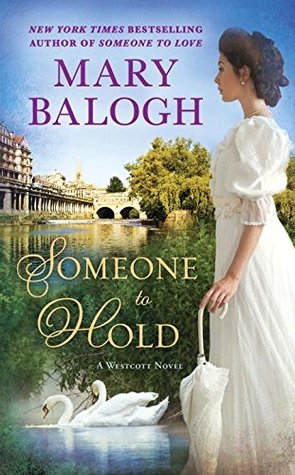 Someone to Hold (Westcott, #2) by
Someone to Hold (Westcott, #2) by 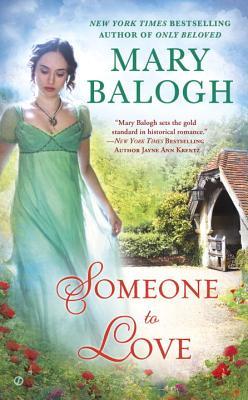 Someone to Love (Westcott, #1) by
Someone to Love (Westcott, #1) by